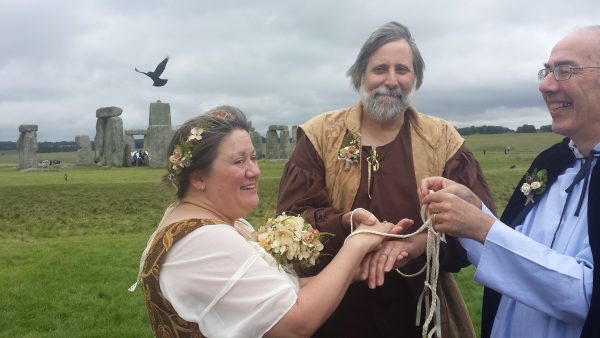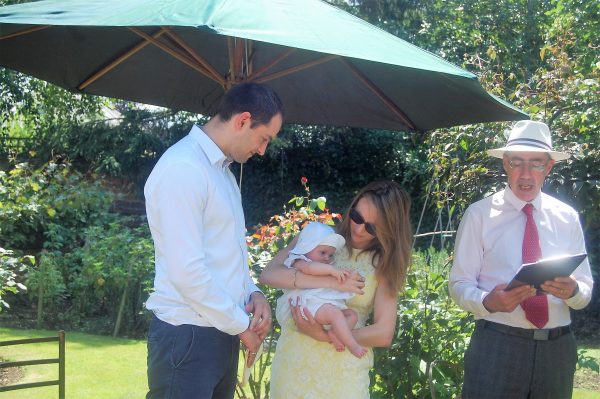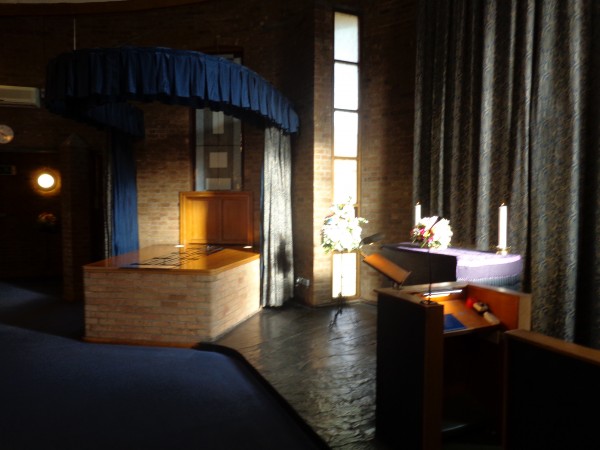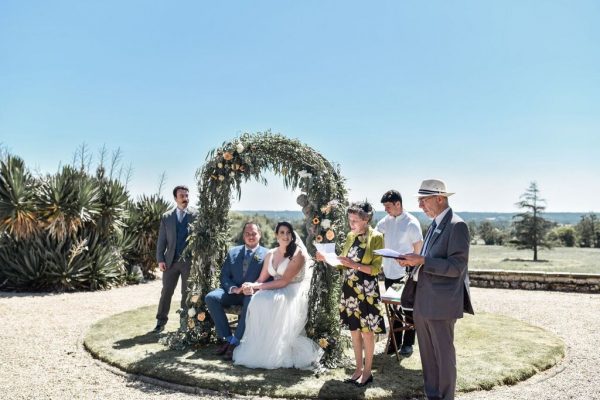
by Michael | Jun 30, 2020 | Blog
Who’d plan a major event at this time?
Off-putting as it may be – with regulations changing almost by the day and often ambiguous – people have not been deterred from arranging life-cycle events.
Although some have cancelled their wedding, most have been rearranging them.
The Latest Changes
You will probably have noted that weddings are now permissible again (obviously, subject to social distancing etc.). However, this good news is diluted by other realities.
Apparently, there is a serious shortage of registrars, so this is causing further delays. A number of people are therefore turning to civil celebrants so that they can at least have the service. They then book the legal ceremony at the register office whenever that is possible.
Another cause of delay is the venues. These have to consider risk assessments and may need to make major structural changes.
Assuming all is COVID-secure, here (based on the government’s guidelines this week) are some things you need to bear in mind for your wedding (in no particular order):
Important Considerations
The conditions I’m about to mention currently seem to extend only to full religious or register office services. There is no clarity about celebrant-led ceremonies. Probably, the same rstrictions apply.
Services should be kept as short as possible.
Religions may need to adapt traditional practice (eg avoiding processions).
Numbers attending receptions should not exceed 30 people. Social distancing should be observed between different households.
There can be no food or drink during a service, unless required for solemnisation.
If rings are to be exchanged, hands should be washed before and after. Rings are to be handled by as few people as possible.
If an infant is involved, it should be held by its parent/guardian or household member.
Noise (singing, shouting, playing music etc.) should be kept to a minimum. Spoken responses likewise.
Avoid instruments that are blown into. If singing/chanting is required, only one person should do this. Recordings should be used, not communal singing.
So there is – cautious – progress!
If you’d like to discuss working with a civil celebrant, then I’d love to have a chat with you.

by Michael | Jun 23, 2020 | Blog
Things can move very quickly – it is fair to say that this has so far been an unprecedented year globally. However, since lockdown, speed of change seems to have slowed considerably. Some business owners – notably, in the food and drink and the leisure industries – must feel that change can’t come soon enough.
My own field – life-cycle ceremonies, especially weddings and funerals – is still surrounded by uncertainty.
Funerals
There is no longer any obligation to have direct cremation, although the option remains. So there is at least the opportunity for a ceremony and a degree of closure for families. However, social distancing restrictions mean families cannot attend, if they number more than 30. Those that do often can’t sit together or share a hug for consolation.
There is still the option, of course, for memorial services, scattering of ashes ceremonies, or celebration of life events later – but who knows when these will be permissible?!
Weddings
As of 22nd June, in Wales weddings may take place once more. That means that registrars will conduct ceremonies, with two witnesses present. However, no big celebrations will be allowed. So marriages and receptions will presumably be separate as well as small. (At least, there is the possibility of live-streaming to a wider audience.)
Currently, similar developments will be happening in England from 4th July, so there is a little light at the end of the tunnel.
The 30-people (plus social distancing) limit will apply. There will probably be restrictions on locations too.
The same will apply to namings and vow renewals (which don’t need registrars).
Well, let’s hope things can soon progress and that it will become easier to plan life-cycle events.
I’m happy to chat things over with you, if you are considering such a ceremony.

by Michael | Jun 8, 2020 | Blog
The funeral industry took quite a bashing in Hannah Betts’ recent article in ‘The Telegraph Magazine’ (01.02.20) (with statistics provided by Sunlife).
It wasn’t
all bad news, but much of it was probably quite eye-opening.
In England in the last couple of years pre-COVID, there were over 500,000 deaths/year, and this is expected to increase to 565,000 by 2032. There are increasing space issues regarding burial which need to be met. However, c. 78% of UK funerals are now cremations.
Expenses
The average
cost of a basic UK funeral (not counting flowers and catering) was over £4,000
in 2019. That’s a huge increase since 2004, when it was less than £2,000.
For the
whole works, including professional fees, the average amounted to nearly £9,500.
Apart from burial or cremation fees, there are usually funeral director’s fees
to consider and officiant’s fees. If you’re having a memorial, this can be a
major expense (around £900) and catering costs an average of over £400. There
may also be venue hire. Smaller expenses (but they all add up) are Order of
Service booklets, doctor’s fees, limousine hire, flowers and the death notice.
However,
there’s now a groundswell towards choice. Things don’t have to be done the way
they ‘always’ have been. Whereas some people are fine with the Funeral
Directors in traditional top hat and tails, some people prefer informality.
Indeed, a direct cremation (no ceremony at all) is a cheap option (although not
for everyone).
Green
Ceremonies
Some Funeral
Directors offer budget ceremonies, but, again, it depends on what you want on
the day. There is a lot more awareness of ecology, and you can request green
burials with biodegradable coffins. Crematoria have improved massively and
emissions are cleaner, but carbon is still one of the by-products of the
process. Green or liquid cremations are much less damaging.
Embalming
(to preserve bodies to be viewed by relatives) requires use of formaldehyde for
each body, and this is a carcinogen.
Choice
At a cost,
you can choose unusual venues (such as golf courses) and use special hearses (like
camper vans or fire engines). The service can be personalised, both content,
tone and attire.
Many
funerals these days offer live-streaming facilities.
Add-ons
Basic burial
costs over £1,000 more than cremation on average, but this is region-dependent (it
costs some £4,000 more to be buried in London compared with Northern Ireland).
Summary
As a funeral celebrant, I am one of the “expenses”. Of course. I don’t believe I have to justify my fee, as I normally work with the bereaved to compile, in a short time, a celebration of life that entirely fits the bill. Then I conduct the service – usually, to the family’s (and guests’) complete satisfaction. It takes skill and empathy.
It seems right
that there are fees across the board, although some seem excessive. I suspect
that certain suppliers are taking advantage of clients’ vulnerability and
ignorance. However, I have worked with many who do a fantastic job and deserve
to be rewarded.
The great
thing is that now there is choice out there, and each person has the chance to
get value for their money. Hopefully, the funeral comes down to more than money
finally, but that’s certainly an issue that is rightly being addressed.
Michael can
put together and conduct a personalised ceremony. Feel free to contact him
directly.
by Michael | Apr 27, 2020 | Blog
More of a newsletter than a blog this week, but I thought I’d update you with what’s happening in the world of life-cycle ceremonies under Coronavirus. It’ll probably all be out of date by next week!
Celebratory
Very little to report here, I’m afraid. Some people are going for Zoom weddings, or the like. That way, depending on the package you have, you can include up to 100 “guests”, so it’s a viable alternative.
Most of my couples have deferred their booking till the autumn (although who knows if that is far enough on?!).
I am still receiving enquiries, but far fewer than I’d normally expect at this time.
Funerals
There is still inconsistency all over the sector. Some cemeteries are re-opening for visits. My local crematorium is talking about re-opening for ceremonies, but has offered no date. Another crematorium I work with (which continues to offer ceremonies) has just announced that the maximum number of mourners allowed is increasing from 10 to 15. Some crematoria offer web-cam or streamed services, so at least other mourners have a chance to be included somehow.
The bottom line is that nobody really seems to know what is happening!
Alternatives
Many people are not satisfied with direct cremation or services with limited attendees. They are planning for the end of lock-down (whenever that may be) and considering any of Celebration of Life ceremonies, Memorial Services or Scattering of Ashes.
On the whole, you can hold these wherever you choose, and, if you’re organising a spread, you can probably have that in the same place as the ceremony.
I would be happy to discuss these possibilities, if I can be of help.

by Michael | Mar 18, 2019 | Blog
Do we want
American-style weddings?
American and British affairs can be strikingly different. We Brits do our pageantry really well, but Americans know how to enjoy themselves.
So what differences are there between (typical) English and American weddings?
Rehearsal Dinner
A rehearsal dinner is very much de rigueur over the pond. In my experience, it is the exception in England. It is commoner, though, for larger, more complex events over here, but the dinner is likely to be an add-on. Sorting out choreography is the main purpose.
Bridal Parties
The number of people actively involved in the wedding tends to reach double figures in the US; far fewer usually participate in England. That can make life easier, if all goes without a hitch, but can otherwise put a lot of work on a few people’s shoulders.
Terminology
For a nation that talks about diapers, faucets and the like, it’s not really surprising that the Americans have a different wedding vocabulary too. “Ushers” are referred to as “groomsmen”, and so on.
The English “wedding
breakfast” is a source of confusion, of course. It tends to be eaten in the
afternoon or evening, and, of course, you shouldn’t expect to find conventional
breakfast foods on the menu!
Venues
Many UK venues will be historic and have evolved a set way of doing things. They don’t welcome change, and many Americans are rebuffed if the venue doesn’t want to put their ideas into practice.
Procession
The ceremony
itself can be very different. One of the main decisions to be reached is
whether the wedding begins in the American or British way. According to UK
tradition, the bride comes in first, followed by bridesmaids (supporting her
train) and possibly ushers. In America, all the participants enter first and
suspense is built until the bride enters in all her glory. The American way is
prevailing these days, and I have to confess that I prefer the drama of it.
Reception
After the
ceremony, there is usually the wedding breakfast (possibly, after canapes and
drinks), then a break, and the evening festivities. Unlike in the US, people may
only be invited to certain sections.
One reason why
Americans are invited to the whole shebang as a matter of course is the vast distances
they may have to cover to attend a wedding. It’s only fair for them to be
welcomed in all parts!
Speeches
The
Americans take advantage of the opportunity to harangue a captive audience!
Over here, that privilege goes to the bride’s father, the best man and the
groom (although some brides are muscling in too nowadays).
Booze
Our American
cousins expect there to be an open bar; they are usually very surprised at the
idea of a cash bar! With the costs of weddings as they are, it’s not
unreasonable, though.
I’ve conducted several Americo-British weddings, but not yet been invited to the reception, so if I’ve got any of this wrong, please do correct me.
If you’d like to subscribe to my YouTube channel for information and opinions, please go to https://www.youtube.com/channel/UCAn4A6oqXAHR0Gqhz0_BG-w?view_as=subscriber
Photo: taraflorence.com




